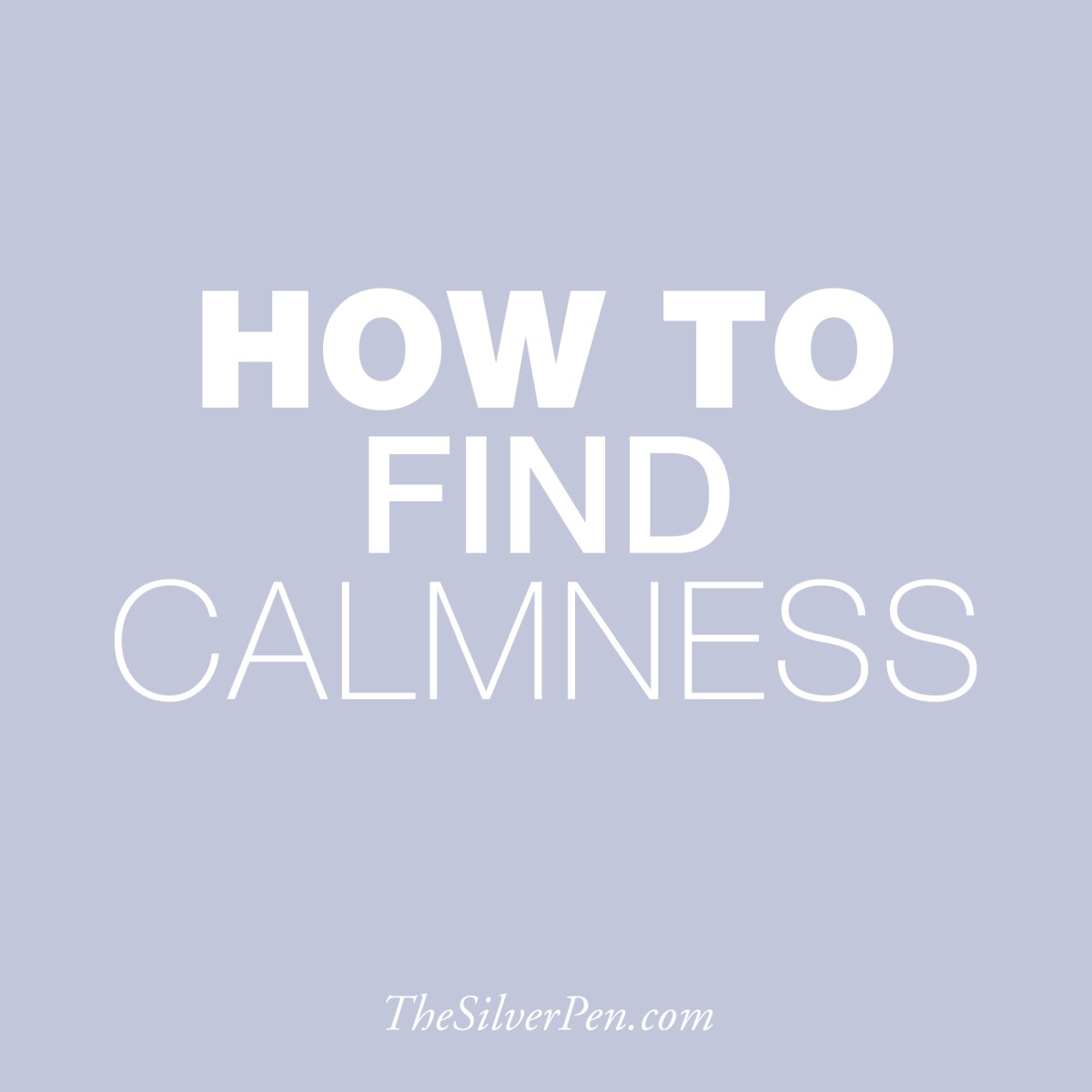How to Find Calmness
Next week is going to be a super busy, super intense week. I have a humongo speech that I am eagerly (and – truth be told – a little nervously) preparing for. So this weekend, I’m focusing on calmness. And breathing.
When I get all ver klempt about something, I am a list kind of girl. For some reason, they center me and help me focus. Along those lines, I am still amazed (and sometimes baffled!) by the fact that helpful information and tidbits of support continue to appear at just the moment that I need them. I never cease to be amazed by the Silver Linings that appear just when I need them!
One of my favorite blogs is Zen Habits written by the inspiring minimalist, Leo Babauta. I love the simplicity and clarity of the messaging. No fuss, no muss. Recently, there was a terrific post on how to find calmness. It is helping me immensely and I hope that it does the same for you!
These are the habits to develop that will help you develop calmness:
- A calm morning ritual. Many people rush through their mornings, starting the day out in a stressful rush. I wake up a little earlier (5 a.m. these days, though that changes), and start with a little meditation, then a few yoga poses. I then start writing, before I let the noise in. Exercise is another component of my morning routine. You don’t need to do the same things, but find the quiet of the morning and make the most of it.
- Learn to watch your response. When something stressful happens, what is your response? Some people jump into action — though if the stressful situation is another person, sometimes action can be harmful. Others get angry, or overwhelmed. Still others start to feel sorry for themselves, and wish things were different. Why can’t other people behave better? Watch this response — it’s an important habit.
- Don’t take things personally. Many times the response (that you noticed in Habit 2) is to take things personally. If someone does something we don’t like, often we tend to interpret this as a personal affront. Our kids don’t clean their rooms? They are defying us! Our spouse doesn’t show affection today? He/she must not care as much as he/she should! Someone acts rudely at work? How could they treat us this way?! Some people even think the universe is personally against them. But the truth is, it’s not personal — it’s the other person’s issue that they’re dealing with. They are doing the best they can. You can learn not to interpret events as a personal affront, and instead see it as some non-personal external event (like a leaf falling, a bird flying by) that you can either respond to without a stressful mindset, or not need to respond to at all.
- Be grateful. Sure, lots of people talk about gratitude … but how often do we apply it to the events of our day? Things are crashing down at work, or our boss is angry, or our co-workers are rude, or our kids are misbehaving, or someone doesn’t love us as we’d like … do these cause anger/anxiety/unhappiness, or can we be grateful? Drop the complaints, and find a way to be grateful, no matter what. And then smile. This unbending habit can change your life.
- Create stress coping habits. Many times, when we are faced with stress, we have unhealthy responses — anger, feeling overwhelmed and withdrawing, eating junk food, drinking alcohol or taking drugs, shopping or otherwise buying stuff, going to time-wasting sites, procrastinating, and so on. Instead, we need healthy ways to cope with stress, which will come inevitably. When you notice stress, watch how you cope with it, and then replace any unhealthy coping habits with healthier ones. Healthy stress coping habits include: drinking tea, exercise, yoga, meditation, massaging your own neck & shoulders, taking a walk, drinking some water, talking with someone you care about.
- Single-task. I’ve written numerous times in the past about single-tasking vs. multitasking, but I think people multitask now more than ever. People text while on the train, while walking, while driving. They tweet and post to Facebook and Instagram, they email and read blogs and news, they watch videos while getting things done, they watch TV while eating, they plan their day while doing chores. This is a great way to cause a level of anxiety that runs through everything you do, because you’re always worried you should be doing more, doing something else. What if, instead, you just did one thing, and learned to trust that you shouldn’t be doing anything else? It takes practice: just eat. Just wash your bowl. Just walk. Just talk to someone. Just read one article or book, without switching. Just write. Just do your email, one at a time, until your inbox is empty. You’ll learn that there is peace in just doing one thing, and letting go of everything else.
- Reduce noise. Our lives are filled with all kinds of noise — visual clutter, notifications, social media, news, all the things we need to read. And truthfully, none of it is necessary. Reduce all these things and more, and create some space, some quiet, in your life.
Wishing you a beautiful and calm weekend!


Great tips,,thank you. The unexpected things take place every week and I believe as well that one can practice how to handle those.
Absolutely, Inni! You are so right…